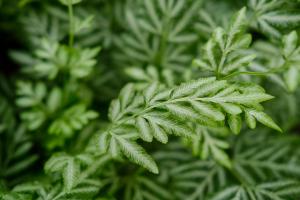Can You Spray Herbicides at Water Plants?
Herbicides are commonly used by farmers and gardeners to kill weeds and unwanted plants. However, when it comes to water plants, it is important to consider the potential ecological impact of herbicide use. In this article, we will explore the question of whether or not it is safe to spray herbicides at water plants.
Herbicides and Water Plants
Herbicides are designed to kill plants, including water plants. While herbicides can effectively control the growth of unwanted plants, they also have the potential to harm other organisms in the ecosystem. When herbicides are sprayed near or in water, they can leach into the water and affect aquatic life, including fish, shellfish, and other animals that rely on water plants for habitat and food.
The Ecological Impact of Herbicides
Herbicides can have a significant impact on the ecological health of water bodies. When herbicides are sprayed at water plants, they not only kill the targeted plants, but also harm other plants and animals in the habitat. Herbicides can alter the chemistry of the water, which can affect the growth and reproduction of aquatic organisms. They can also contaminate the sediment, which can have long-term effects on the ecosystem. In addition, herbicides are often toxic to other organisms, including beneficial insects, bees, and other pollinators.
Alternatives to Herbicides
Rather than using herbicides to control unwanted water plants, there are alternative methods that can help maintain a healthy aquatic ecosystem. One such method is to use manual removal techniques, such as hand-pulling or using mechanical harvesters. These methods may take more time and effort, but they are less harmful to the environment and can be effective in controlling the growth of unwanted plants. Other options include the use of biological controls, such as introducing natural predators or herbivores, and planting native species that can outcompete invasive plants.
The Importance of Sustainable Practices
Ultimately, the use of herbicides should be avoided whenever possible, especially when it comes to water plants. Sustainable practices that emphasize the use of natural methods for controlling unwanted plants can help maintain a healthy and thriving ecosystem. By using such practices, we can help protect the delicate balance of nature and ensure that future generations can continue to enjoy the beauty and benefits of a healthy aquatic environment.
In Conclusion
While herbicides may be an effective method for controlling unwanted plants, it is important to consider the potential impact they can have on the environment. In the case of water plants, the use of herbicides can harm aquatic life and disrupt the balance of the ecosystem. By using sustainable practices and natural methods, we can work towards maintaining a healthy aquatic environment that benefits all of its inhabitants.

 how many times do yo...
how many times do yo... how many planted tre...
how many planted tre... how many pine trees ...
how many pine trees ... how many pecan trees...
how many pecan trees... how many plants comp...
how many plants comp... how many plants can ...
how many plants can ... how many plants and ...
how many plants and ... how many pepper plan...
how many pepper plan...
































